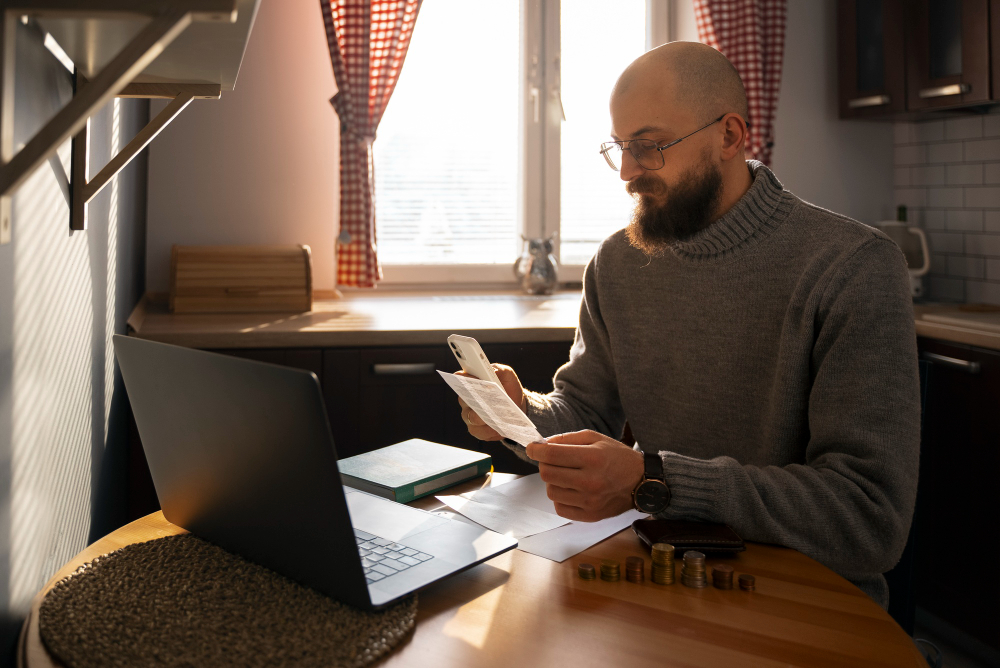
Managing benefits and grants can feel overwhelming if you have a disability or long-term health condition. The Personal Independence Payment (PIP) helps cover extra costs, and while it doesn’t directly fund energy-efficiency grants, it can make you eligible for related government grant schemes. These include support for insulation, heating upgrades, and solar panels—improvements that can lower bills and improve comfort if your home meets the right energy standards.
Insulation grants to improve efficiency
Insulation helps keep homes warm and energy-efficient, which is especially important for people with health conditions. PIP isn’t a direct qualifier for the Energy Company Obligation (ECO) scheme, but through the ECO Flex route, local councils can approve funding if a household is vulnerable to cold. Homes must usually have an Energy Performance Certificate (EPC) rating of D, E, F, or G. The Great British Insulation Scheme (GBIS) also allows councils to arrange insulation upgrades for households that need them most.
Heating system upgrades
Upgrading heating systems can reduce bills and make homes more comfortable. PIP doesn’t automatically qualify you for funding, but you may still benefit from the Boiler Upgrade Scheme. This provides up to £7,500 for installing heat pumps or biomass boilers. These upgrades are especially useful for homes with low EPC ratings, where staying warm can be more difficult.
Solar energy support
Solar energy can cut bills and help the environment. Until 2027, solar panels, batteries, and heat pumps are VAT-free, and households can also earn money through the Smart Export Guarantee (SEG) by selling unused solar power back to the grid. While PIP isn’t a direct qualifier, recipients in homes with EPC ratings of D to G can take advantage of these incentives.
For PIP recipients, government grants for insulation, heating, and solar panels can make homes warmer, cheaper to run, and more sustainable. Even though PIP isn’t a direct qualifier for all schemes, options like ECO Flex and GBIS can still help. Meeting the required EPC standards is key to unlocking these benefits and improving both comfort and quality of life.
Understanding the grants available is one step—knowing how to apply is just as important. A successful application can improve comfort, cut bills, and boost energy efficiency for PIP recipients. Here are the key steps:
- Check your EPC rating: Find out your home’s Energy Performance Certificate (EPC) rating. Most schemes require a rating of D, E, F, or G.
- Review heating upgrade options: See if you qualify for the Boiler Upgrade Scheme, which can provide funding for heat pumps or biomass boilers.
- Look into renewable incentives: Take advantage of 0% VAT on solar panels, batteries, and heat pumps until 2027. The Smart Export Guarantee (SEG) can also pay you for exporting extra solar power to the grid.
- Prepare documents: Have proof of your PIP award and any other required paperwork ready to make the process smoother.
Applying for these grants can feel complex, but following the right steps makes it easier. Ensuring your property meets the criteria and working closely with your council is key. Trusted organisations like Energy Saving Grants can also guide you through the process. With the right support, PIP recipients can access funding that makes their homes warmer, cheaper to run, and more sustainable—leading to a better quality of life and long-term savings.
Discover your energy-saving potential today
At Energy Saving Grants, we are committed to helping you unlock the potential of government funding for energy efficiency improvements. Whether you’re a homeowner, landlord, or tenant receiving Personal Independence Payment (PIP), our expertise in navigating the various grant schemes ensures you can access the support needed for insulation, heating upgrades, and renewable energy installations. Let us guide you towards a more energy-efficient and comfortable living environment.
To discover whether you are eligible for available grants, we encourage you to use our Grant Checker tool. By simply entering your details, you can quickly find out what support is available for you and start taking steps towards reducing energy bills and enhancing your property’s efficiency.
Stay informed and connected with us
Thank you for taking the time to read our blog. We hope you found the information helpful in understanding the energy efficiency grants available to you. We invite you to explore our other blog posts, where we dive deeper into various energy-saving solutions and tips to enhance your property’s efficiency and sustainability.
Stay connected with us by following our social media accounts, where we share the latest updates, insights, and advice on energy efficiency and government grants. Join our community to keep informed and be a part of our mission to promote sustainable living for everyone.
Your top PIP-related grant FAQs answered
Can you get a heating grant on Personal Independence Payment (PIP)?
Yes, PIP recipients may qualify for heating grants through schemes like ECO Flex. While PIP isn’t a direct qualifier, local councils can approve funding if health conditions make households vulnerable to the cold. This support can help improve heating systems and reduce energy bills.
Can you get a solar panel grant on Personal Independence Payment (PIP)?
PIP itself doesn’t directly qualify you for solar panel grants, but you may still access benefits. Through incentives like 0% VAT on installations and the Smart Export Guarantee (SEG), you can save money and even earn income from excess electricity. Eligibility usually depends on your home’s Energy Performance Certificate (EPC) rating.
Can you get a boiler grant on Personal Independence Payment (PIP)?
Yes, PIP recipients may be able to access help with gas boiler upgrades. The Boiler Upgrade Scheme also offers up to £7,500 towards renewable heating systems such as heat pumps or biomass boilers. Eligibility is often linked to property EPC ratings rather than PIP alone.

